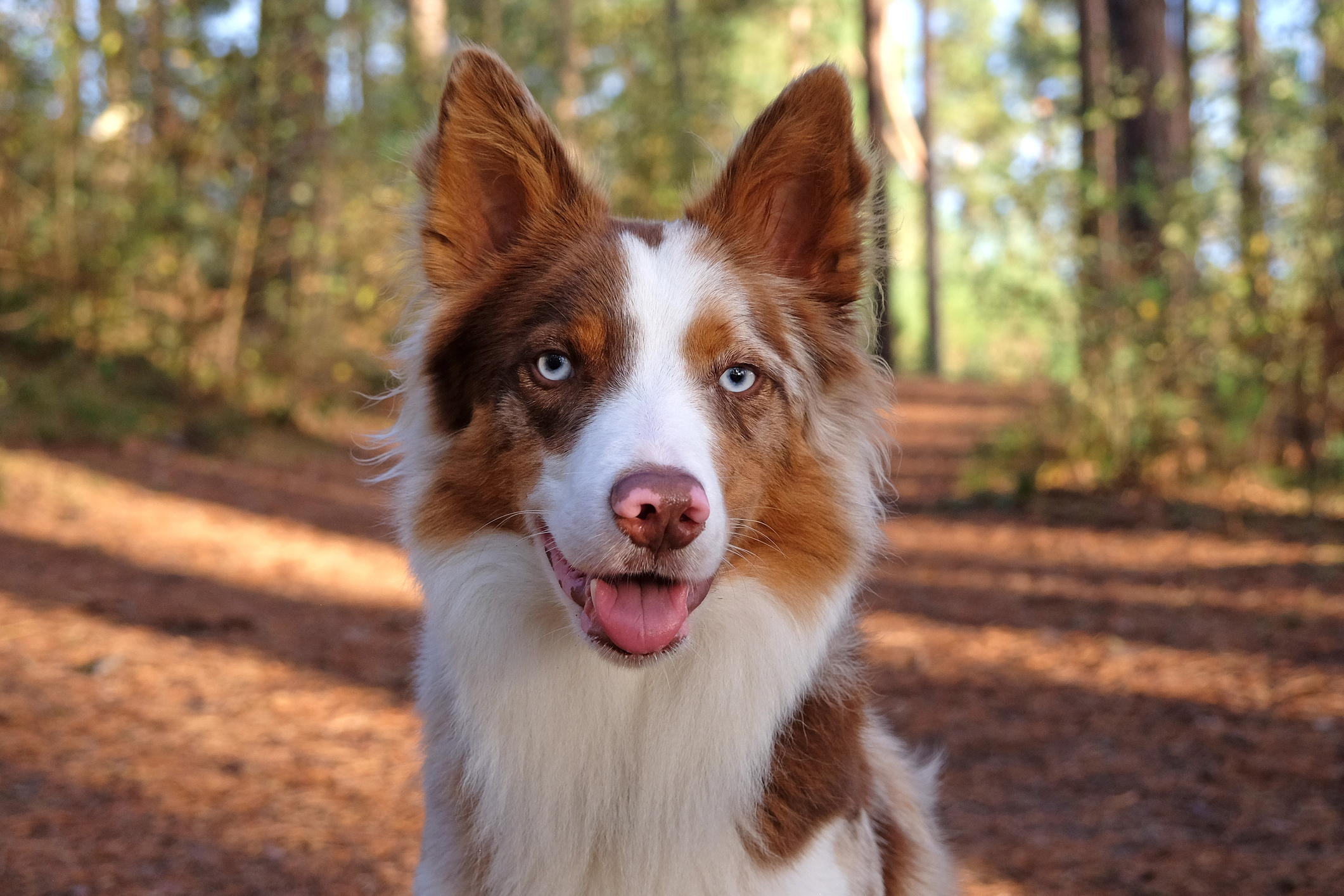
With first-place intelligence, athleticism, and charm, the Border Collie is the triple threat of the dog world. So skilled are they that there are dog agility shows in England with “ABC” classes, to make competitions fair for breeds that include “Anything But Collies.”
Whether you have your very own overachiever on four legs or you’re a fan of the breed, learn all about ‘em in honor of National Border Collie Day.
How The Border Collie Breed Came To Be
The Border Collie originates from the British Isles, likely predated by large herding dogs imported by the Romans during their invasion over 2000 years ago, crossbred with small, Spitz-type breeds introduced during the Viking Age from 800-1000 AD.
In 1893, English farmer Adam Telfer bred the grandfather of all modern Border Collies, an undefeated herding trial champion named “Old Hemp.” Old Hemp was renowned for his ability to silently “read” the herd with an intense stare, making highly calculated movements to avoid agitating the livestock. Old Hemp sired over 200 puppies, and to this day, every Border Collie descends from his bloodline.
Border Collie Breed Traits

Most of us will recognize the classic black and white coat pattern seen on the majority of Border Collies. All other coat colors and patterns are accepted according to the AKC breed standard, including merle, tricolor, sable red, and brindle.
The average Border Collie is about 30 to 50 pounds in weight and stands at about 20 inches at the shoulder. Males are typically slightly larger than females.
Common Health Issues in Border Collies
Border Collies are generally healthy dogs, with an average lifespan of about 12 years, though they are more susceptible to certain health issues.
Ivermectin Sensitivity. Like other Collie breeds, the majority of Border Collies carry the genetic mutation MDR1 that makes them unable to metabolize ivermectin, a medication used to eliminate parasites. Ivermectin can cause neurological symptoms like seizures in Collie breeds. Your Border Collie should never take ivermectin even if they do not have a history of sensitivity, unless they have undergone genetic testing for the MDR1 gene.
Epilepsyor recurring seizures are common in Collies. Seizures can sometimes be managed with medication, and may be mild and infrequent for many dogs, but in others, unfortunately, epilepsy can cause neurological damage, physical trauma, and premature death.
Inherited Eye Diseases commonly diagnosed in Border Collies include collie eye anomaly (CEA), progressive retinal atrophy (PRA), and persistent pupillary membranes. These hereditary, developmental conditions are typically diagnosed by eight weeks of age, and can cause little to no vision loss, or in some cases complete blindness in one or both eyes.
Border Collie Collapse (BCC) is a nervous system disorder that causes episodes of disorientation, unsteadiness, and collapse, triggered by intense exercise in warm weather. Dogs that experience BCC should be retired from working or sports, as episodes can be fatal.
Hypothyroidism in Border Collies is caused by an autoimmune condition in which the body attacks the thyroid gland. Low levels of thyroid hormones cause coat dryness, weight gain, hair loss, and lethargy. While there is no cure, this condition can be treated with thyroid hormone supplement medication.
How To Care For Your Border Collie
Border Collies, like all breeds, need regular vet visits to monitor for known hereditary conditions, as well as early signs of other health issues. Your veterinarian can recommend a heartworm and parasite prevention protocol that’s free of components like ivermectin that are known to trigger adverse reactions in Collie breeds.
These days, Border Collies are more commonly seen in pet homes than out in the pasture, but they still have deeply ingrained herding instincts that can become overly intense if not kept in check. Border Collies are known to be “too smart for their own good,” easily learning to open doors, unlock latches, and cause mayhem when left alone.
With socialization, early training, and boundaries, they can reach their potential as companions and playmates. Competing in agility and dog sport competitions can be a great outlet for that boundless Border Collie energy the breed is famous for.
Why We Love Border Collies
The Border Collie is highly communicative and can have a vocabulary as extensive as that of a three-year-old child. As companions, they are as devoted to their loved ones as they are to their work. They learn quickly and work tirelessly to complete a task, and they thrive when they are mentally stimulated and enriched each day.
Like other popular breeds, many Border Collies are bred irresponsibly without genetic testing or regards to temperament and longevity, which can lead to a greater risk of your puppy developing serious health issues. Avoid purchasing a puppy from a pet shop, backyard breeder, puppy mill, or an unknown source.
Seek a reputable breeder through the AKC Marketplace or Border Collie Breed Club directory that conducts recommended health and genetic screening. Or, consider rescuing a Border Collie or herding dog mix through a shelter or breed specific rescue near you.















































